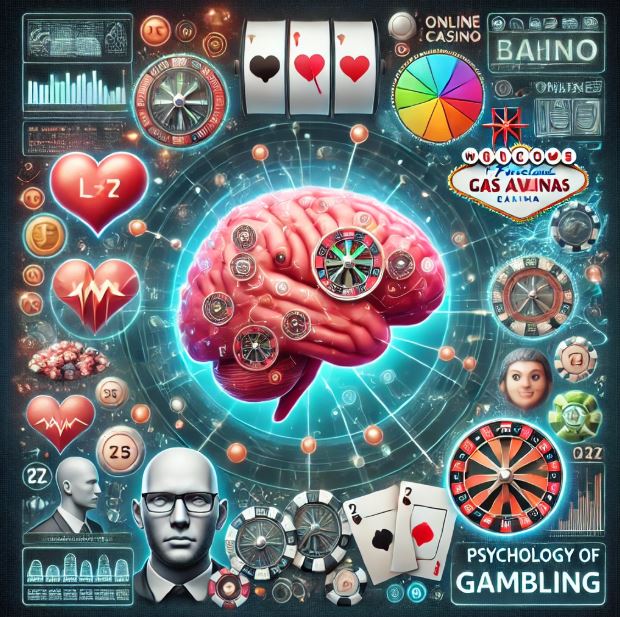 The world of online gambling is filled with both excitement and misconceptions. Many players believe that winning at 1win Africa is purely a matter of luck, while others assume that casinos manipulate odds to prevent big payouts.
The world of online gambling is filled with both excitement and misconceptions. Many players believe that winning at 1win Africa is purely a matter of luck, while others assume that casinos manipulate odds to prevent big payouts.
But what is the actual truth behind how winnings are determined? Understanding how odds, game mechanics, and probability work is essential for making informed betting decisions.
Beyond the numbers, psychology plays a significant role in gambling behavior. Many players continue to place bets even after experiencing losses, hoping for a comeback. This phenomenon, often fueled by emotions and cognitive biases, keeps the thrill of gambling alive.
But why do players at 1win Afrique keep going, even when luck isn’t on their side?
Whether it’s uncovering the real mechanics of casino games or diving into the psychological factors that drive betting habits, these topics are crucial for anyone looking to navigate the world of online gambling wisely.
Are winning chances truly fair, or is there more going on behind the scenes? And what mental triggers make players chase losses instead of stepping away?
In this article, we will explore the myths and realities surrounding Africa’s winning odds while also analyzing the deeper psychological reasons behind risk-taking in gambling.
Understanding these aspects can help players make better decisions and approach online betting with a more strategic mindset.
Myths vs reality: how 1win Africa determines winning odds
Many players enter online casinos with the belief that winning is either entirely based on luck or that the platform controls outcomes to its advantage.
While chance plays a significant role, the reality is more complex. 1win Africa, like all legitimate online casinos, operates under strict gaming algorithms and fairness protocols.
But how are winning chances actually formed, and what myths do players often believe? Let’s break it down.
| Myth | Reality |
| The casino decides when players win or lose. | 1win Africa uses Random Number Generator (RNG) technology, ensuring that game outcomes are unpredictable and not manually controlled. |
| Games are rigged to never pay out big wins. | While house edge exists, games are designed to pay out based on probability, and jackpots have been won by real players. |
| If a slot machine hasn’t paid out in a while, it’s “due” for a big win. | Each spin is independent; past results do not affect future outcomes due to RNG mechanics. |
| Live dealer games are controlled to favor the casino. | Live games operate with real dealers in real-time, streamed directly, and follow strict industry fairness standards. |
| Winning streaks are proof that the system can be manipulated. | Winning and losing streaks are natural occurrences in probability-based games and are not indicators of casino interference. |
| Higher bets increase your chances of winning. | While bigger bets can lead to larger payouts, they do not alter the actual odds of winning in any given game. |
| The casino can stop players from withdrawing after a big win. | Licensed platforms like 1win Africa have withdrawal policies in place, and as long as terms are met, winnings can be cashed out. |
1win Africa’s games operate using certified Random Number Generators (RNGs), which ensure that every spin, card shuffle, or bet placement is completely random and unbiased. The platform is also regularly audited by independent testing agencies to maintain transparency and fairness.
While the house edge ensures that casinos remain profitable in the long run, players still have real opportunities to win. Understanding how odds work, managing bankroll effectively, and choosing games with high Return to Player (RTP) percentages can improve the chances of securing payouts.
By separating myths from reality, players at 1win Africa can approach online gaming with a clear understanding of how winning odds are determined, leading to smarter and more strategic gameplay decisions.
The psychology of risk: why 1win players keep betting after losses

But what makes them chase losses instead of stepping away? Understanding the psychological triggers behind risk-taking can help players make better decisions and avoid common pitfalls.
- The gambler’s fallacy
Many players believe that if they’ve lost multiple times in a row, they are “due” for a win. This misconception leads to continued betting, even though each outcome is independent. - Loss aversion
Losing money is emotionally painful, and players often continue gambling in an attempt to recover their losses rather than accept them. - The thrill of near wins
Almost winning—such as landing two jackpot symbols on a slot machine—tricks the brain into thinking a win is just around the corner, encouraging more bets. - Dopamine and reward systems
Gambling activates the brain’s reward system, releasing dopamine, the same chemical associated with pleasure. Even losing bets can keep players engaged due to the anticipation of a potential win. - The illusion of control
Players often believe they can influence game outcomes with strategy, even in games of pure chance, leading them to keep betting despite previous losses. - Emotional decision-making
After a losing streak, frustration and excitement can override logical thinking, making players take bigger risks to “turn things around.” - Sunk cost fallacy
Many gamblers feel that after investing time and money, they must continue playing to justify their previous bets instead of walking away. - Social and competitive influences
Seeing other players win—or feeling the pressure to keep up—can push individuals to continue betting despite losses. - Availability bias
Players remember big wins more vividly than losses, which skews their perception of how often they actually win, leading to overconfidence.
Recognizing these psychological patterns is the first step toward more controlled gambling behavior. Setting limits, taking breaks, and understanding that every bet is independent can help players make smarter decisions.
1win provides responsible gaming tools, such as deposit limits and self-exclusion options, to help users maintain control over their gambling habits. By staying aware of these psychological triggers, players can enjoy the excitement of betting while avoiding the risks of impulsive decision-making.
Final thoughts: understanding winning odds and risk psychology at 1win
The world of online gambling is often surrounded by myths and misconceptions, but understanding the real mechanics behind winning odds at 1win can help players make more informed decisions.
While casino games operate on chance, they are built on fair algorithms such as Random Number Generators (RNGs), ensuring transparency and unpredictability. Separating fact from fiction allows players to approach betting with realistic expectations rather than relying on common gambling myths.
Beyond the technical side, the psychology of risk plays a crucial role in why players continue placing bets, even after experiencing losses. Emotional decision-making, cognitive biases, and the thrill of uncertainty can all contribute to prolonged betting behavior.
Recognizing these psychological triggers is key to maintaining control over one’s gambling habits and making strategic rather than impulsive choices.
1win provides a fair and structured gaming environment, but success in online gambling is not just about luck—it’s about awareness, discipline, and responsible play.
By understanding how winning odds are determined and recognizing the psychological factors at play, users can enjoy a more balanced and rewarding betting experience.








